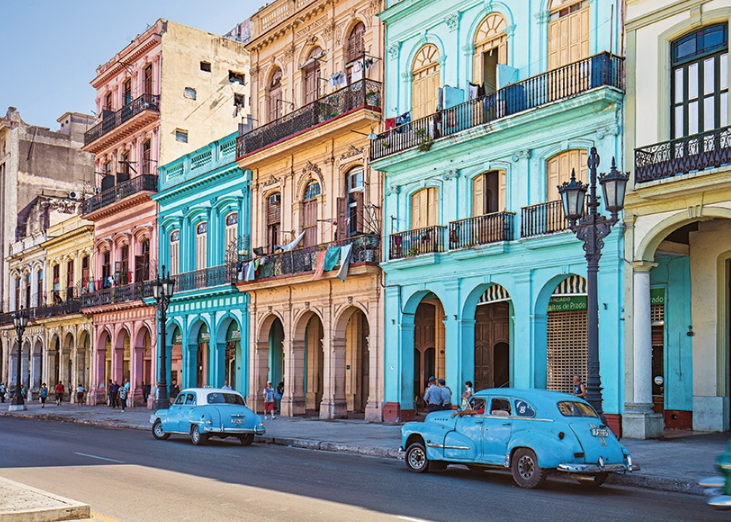I’m always a bit skeptical when I hear talk about a recent trend toward “deregulation”. There is no doubt that regulations in a few areas have been relaxed, particularly environmental rules (such as burning coal). Banks are again being allowed to take greater risks with taxpayer insured funds. But I see many more examples of growing restrictions on freedoms.
The most obvious examples are international trade, international investment, and immigration. And now, travel is another area where the federal government is cracking down. Business travelers are increasingly being turned down for visas.
Charlotte Slocombe, a partner at London-based immigration law firm Fragomen, said she was seeing “one or two business travellers per week having difficulty getting into the US”, often to the surprise of their employers. “One of the more common issues that reach me are arrests, cautions or convictions for drug-related offences, either cocaine or marijuana,” she said.
While UK employees do not have to disclose spent convictions to employers, US visa rules state that any brush with the law is relevant regardless of how long ago it happened, including arrests that do not lead to criminal charges or even cautions.
The warning comes as candidates for the Conservative leadership have revealed past drug-taking habits, with frontrunner Boris Johnson and fellow hopeful Michael Gove admitting to having taken cocaine. Both would now be ineligible for an ESTA visa waiver entry permit since this requires applicants to confirm they have never “possessed, used or distributed” illegal drugs.
Here it is worth recalling that several recent US presidents used illegal drugs when they were young. It seems odd that someone fit to be President of the United States is not fit to visit America. Or that the next UK Prime Minister will be unable to visit the US unless granted a special waiver. (And even if a waiver is granted, do we really want a system where the elite doesn’t have to obey the same rules as ordinary people?)
The problem seems to be getting worse:
Nita Upadhye, managing attorney at NNU Immigration in London, which specialises in securing US visas, said the rising barriers to entry were the worst she had seen in 15 years in the field. There was a 108 per cent increase in refusals of inadmissible persons at US ports of entry in 2018 compared with 2015, according to data from US Customs and Border Protection.
“Under this administration, the level of increased scrutiny of visa applications has hit the next level,” she said.
It’s not just the British; Americans are also losing their freedom to travel:
The Trump administration on Tuesday imposed new restrictions on Americans going to Cuba, banning the most common way Americans travel to the island.
Beginning on Wednesday, the United States will not permit group educational and cultural trips known as “people to people” trips to the island unless they were booked before June 5, the Treasury Department said in a statement. Nor will it allow cruises, private yachts or fishing vessels to stop in Cuba. Group people-to-people trips have been used by thousands of American visitors.
Why ban travel to Cuba, but not Iran?

The fact that people are being turned down for visas for drug violations so small that not even a “caution” was given, suggests to me that the motive here is not to stop big drug dealers from setting up shop here, rather to reduce contact with the rest of the world. A sort of “fortress America” policy approach. But perhaps I’m missing something. Commenters are welcome to offer suggestions as to the actual rationale behind the tightening of this longstanding policy, which seems a bit mysterious to me.

READER COMMENTS
Daniel Hill
Jun 17 2019 at 7:17pm
I think you over-estimate the extent to which people in favor of these kinds of restrictions have a coherent, considered motive. International borders somehow interfere with the normal functioning of the human mind. You see it in trade policy as well.
David Henderson
Jun 17 2019 at 7:43pm
Yes, this is a pity.
The even bigger restriction on travel, though, is one due to George W. Bush’s nationalizing of airline security.
Benjamin Cole
Jun 17 2019 at 7:45pm
US foreign, trade, and military policies make no sense…unless you assume that such governmental policies, like all governmental policies, are heavily influenced (dominated) by those interest groups with the most to gain or lose, plus the financial muscle to back up their interests.
Phil H
Jun 18 2019 at 4:45am
It’s not just America. I’m dreading the day we have to move back to Britain, and we find that it’s almost impossible to get my wife a visa.
Perhaps it’s an inevitable reaction to the fact that so many more people can travel these days. Not so long ago, a war in the Middle East had zero implications for immigration into Britain. Now it does.
Scott Sumner
Jun 18 2019 at 1:09pm
David, Good point.
Comments are closed.